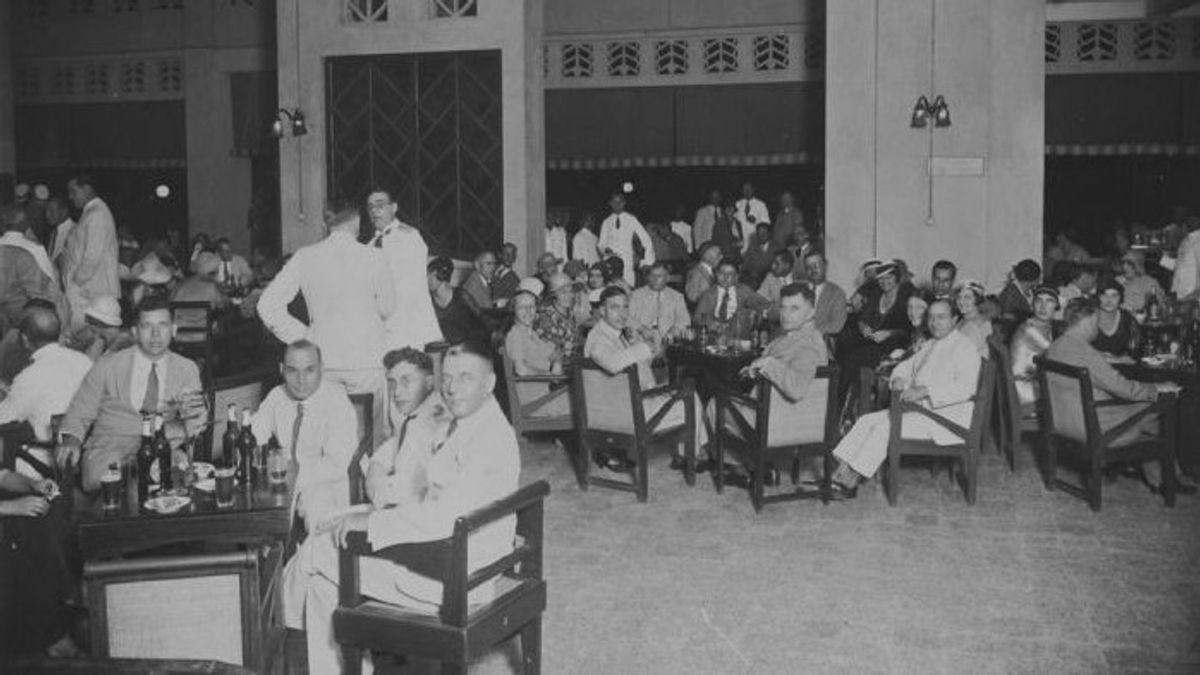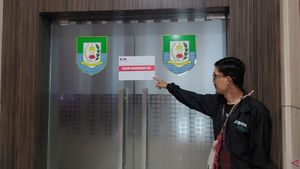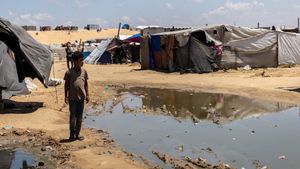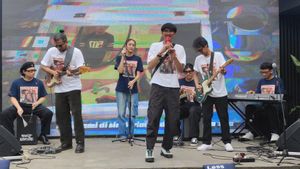JAKARTA - Indonesia is heaven. Indonesia is a magnet. Indonesia is the most perfect medicine. Indonesia has always been known that way. Not only to be enjoyed by nature and culture but also to be used to seek wealth. Just look at the Dutch. Those who were marginalized, fired, had low education and were poor in the Netherlands could suddenly become first class citizens when they moved to Indonesia, which was then still the Indies.
Most of the Dutch people made Indonesia a haven, their fields enriched themselves, and finally retired and returned to their homeland. The conquest of Jayakarta in 1619 became the starting point for the migration of the Dutch to the Indies.
At that time, VOC Governor General Jan Pieterszoon Coen changed the name Jayakarta and built Batavia as the center of government. The Governor-General who served twice - in 1619-1623 and 1627-1629 - wanted Batavia to become a civilized colony, which was closely related to divine values, as taught in general Calvinism.
The VOC leaders in the Netherlands, Heeren Zeventien, granted Coen's wish several times to bring in 'good women' from the Netherlands. However, not all agree with Coen's plan.
Quoted from an article entitled Betawi Ever Importing Girls in the book "Ketoprak Jakarta" (2001), Coen's successor, VOC Governor General Hendrik Brouwer (1632–1636) opposed. Yes, although it is known, when he came to Batavia he also brought his wife, sister-in-law and two female servants.

The reason was that the immigrants from the Netherlands to the Indies were just to get rich. When they are rich, they will return to Holland. So, what Coen describes, civilized society is just a dream in broad daylight. This is because they only came to the Colony by perpetuating their flamboyant, feudal and feudal nature.
In more detail, regarding the show-off attitude of the Dutch people in the colonies, we have reviewed it in the article "The Mad Party and Spree of the Governor-General of the Dutch East Indies".
“The Dutch women who came to the East were poor. Then when they get rich, they don't stop nagging. They want to go home to show off their wealth to their acquaintances, ”said Hendrik Brouwer.
Spree in the Indies, rich in the NetherlandsThis sight was often seen in the early days of the Dutch in the archipelago. The image of the archipelago which was only used as a place of "transit" was an open secret to the Dutch in the Indies. Like men, Dutch women did not have any emotional connection with the Indies.
The only thing they care about is the coffers of income. They returned to Europe after their husband's term was over.
“They organize simple parties which are attended by their peers. There are also official events such as laying stones to inaugurate a building, ”wrote Jean Gelman Taylor in the book Social Life in Batavia (2009).

In fact, there were also those of the Dutch who could adjust to life in the Indies. However, slowly, this desire faded, considering that their children needed an adequate education. And Indies is not the right place. They must return to Holland.
The parents seem not to want their children to suffer in a country they believe is devoid of art, without high culture, without religious knowledge, and without something ideal. "Their children were brought back to Europe because of the void of life in the Dutch East Indies. They were drawn back to the Netherlands by reason of children's education."
"The colonials and civil servants lived in Java only as casual guests. They stayed there as short as possible, only to earn big money or save for retirement and return to their homeland, no regrets for the full Dutch East Indies. smiles, broad life, the easiest awards to get, "said Bernard Dorléans in the book Indonesian & French, From the XVI Century to the XX Century (2006).
Like a hotel
As luxurious as they were in the Indies, the Dutch settlers still chose to return to their hometowns to the land of the Windmills to fill their old age. Indies were like hotal, where they were mere transit. For them, the Indies was only a place to make money through a lot of private trade.
Even a Dutchman, Bath Venth, in the book Het Leven in Nederlandsch-Indie (1900) analogized the Dutch East Indies as a hotel. "All places in the Dutch East Indies have properties like hotels. They accommodate guests, who have just unpacked their bags, and who are already thinking about leaving again. "
"We, in the Indies, are like wandering salespeople. Some of us who are not rich, and who struggle throughout their careers, are forced to spend years in hotels, and they absorb many of the characteristics of butlers and porters, "Said Bath Venth quoted by Rudolf Mrázek in the book Engineers of Happy Land (2006).
Senapas, the Dutch in the Indies tended to just hang out with each other. They are involved in popular clubs, reception parties, after-dinner parties, societies, amateur choirs, to theater unions.
The social life makes the 'hotel guests' dissolve. After the party was over, they packed their belongings and immediately boarded the ship the earliest to return to the Netherlands.
“Moreover, life in the Dutch East Indies is a reflection of hotel life in the Dutch East Indies. A poor life as well as a rich life. The Europeans in the Indies, according to Bath Veth, degrading themselves to be the "stream of hotel guests." In the same way, Bath Veth declared, the Dutch East Indies was really a hotel-thumlich (like a hotel), "concluded Rudolf Mrázek.
The English, Chinese, Japanese, Arabic, and French versions are automatically generated by the AI. So there may still be inaccuracies in translating, please always see Indonesian as our main language. (system supported by DigitalSiber.id)









